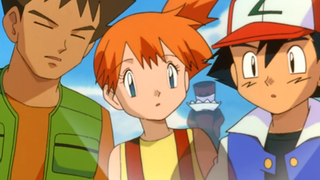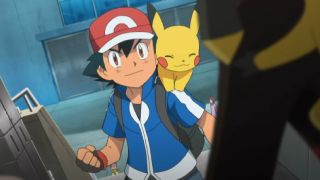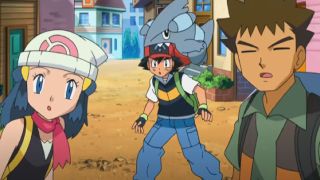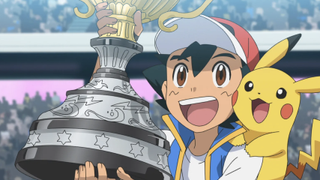Pokemon
Latest about Pokemon

Pokémon: The First Movie Taught Me About Death, And I Have Thoughts As An Adult
By Alexandra Ramos published
A twist I never saw coming about little pocket monsters.

32 Anime That Are Excellent For First-Time Watchers
By Alexandra Ramos published
Let's dive right in, shall we?

Is Detective Pikachu 2 Happening After All? Here’s Why Pokemon Fans Are Feeling Hopeful
By Mick Joest published
Could the underrated movie finally receive a sequel?

32 Pokemon That I Would Give Anything To Have In Real Life
By Alexandra Ramos published
There are some Pokemon you would just give the world for. And these are the ones I would do anything to have.

Pokemon's Ash Actor Shares Emotional Tribute After Co-Star Rachael Lillis' Death At 46
By Mike Reyes published
Pokémon voice actor Veronica Taylor paid tribute to co-star Rachael Lillis, after her untimely death at 46.

Rachel Brosnahan’s Pokémon Fandom Is Strong, And I’m Loving Her Funny Story About How It Creeped Into Her Work Life
By Sarah El-Mahmoud published
As it turns out, Superman's Lois Lane actress, Rachel Brosnahan, is an avid player of Pokémon Go!

Sarah Natochenny Told Us Her Favorite Thing About Voicing Characters Like Ash From Pokemon, And Honestly, I Totally Agree
By Alexandra Ramos published
Exclusives The English voice actress for Ash Ketchum from Pokemon told us what she loves the most about voicing characters -- and her reasoning totally makes sense.

While I Love Diamond And Pearl, Pokémon's Sarah Natochenny Says XY And XYZ Is Her Favorite Generation Of Pokémon For One Reason – And I Totally Get Why
By Alexandra Ramos published
Exclusives Sarah Natochenny spoke with CinemaBlend about her favorite generation of Pokémon and honestly, I totally understand her answer.
Your Daily Blend of Entertainment News

